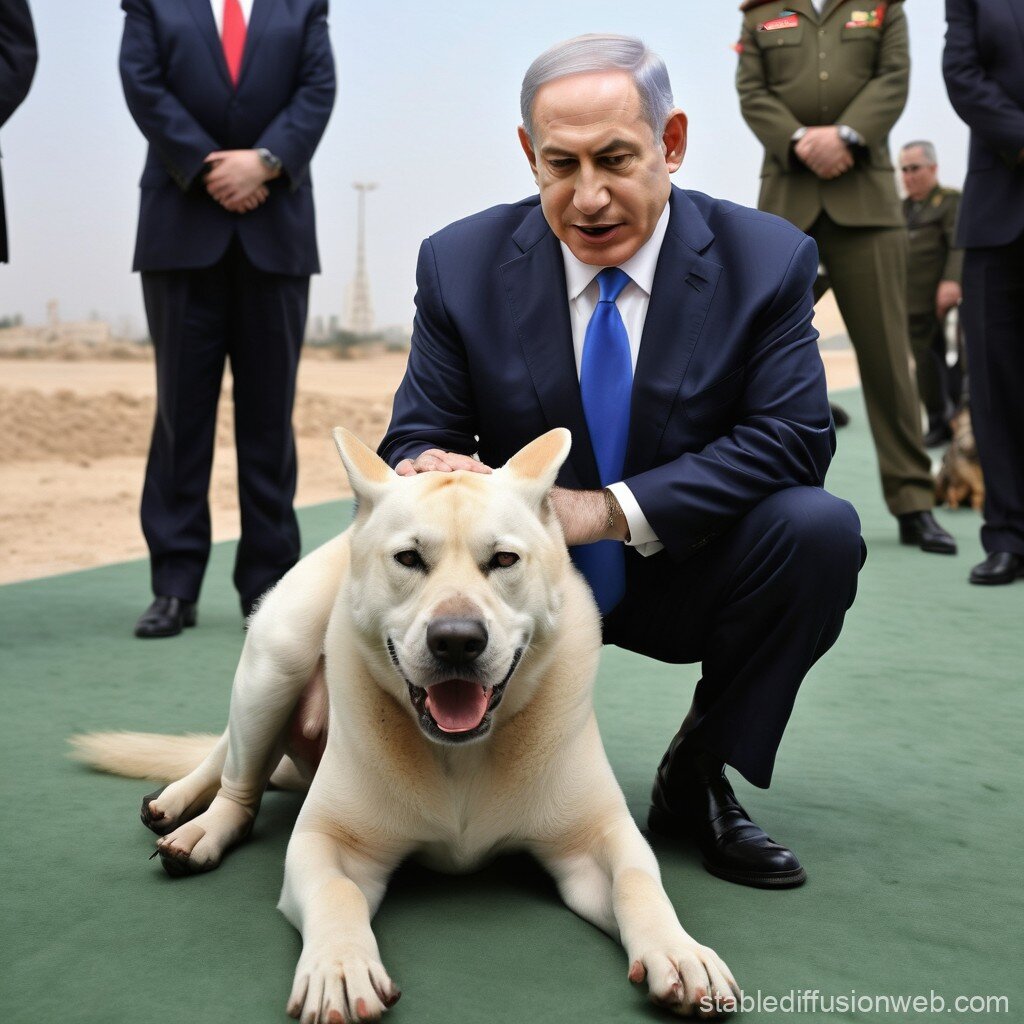Muzzling the mad dog: Bibi is barking up the wrong tree

TEHRAN- Israel’s ongoing aggression against Syria coupled with the rhetoric of Prime Minister Benjamin Netanyahu has further exposed the regime’s expansionist ambitions.
Israel has seized additional Syrian territory since armed groups took over Damascus on December 8 and overthrew president Bashar Assad’s government.
The Israeli army has taken control of a long-standing buffer zone in the Golan Heights that had separated Israeli and Syrian forces for about five decades. Besides, Israeli forces have seized Jabal Sheikh (Mount Hermon) as well as villages and towns inside the Syrian territory.
The cabinet of Prime Minister Benjamin Netanyahu took a step further earlier on Sunday approving a plan to expand settlement building in the occupied Golan Heights.
Netanyahu’s office said his cabinet has “unanimously approved” the “demographic development” of the occupied territory, which would seek to double the Israeli population there.
Several countries in the West Asia region condemned Israel’s move. Qatar said it considers the plan a “blatant violation of international law” and a new act of aggression on Syrian territories.
Israel occupied the Golan Heights in 1967 and annexed it in 1981, a move that has not been recognized by the international community. The United States is the first country in the world which recognize Israeli sovereignty over the area in 2019. The decision was made by then US president Donald Trump.
Netanyahu has discussed his sinister schemes for Syria, Lebanon and the Gaza Strip with Trump who is set to retake office on January 20 after winning the US presidential election in November.
The Israeli premier said in a video statement on Sunday that he had held a phone call with the incoming American president on Saturday evening.
"A year ago, I said something simple: We would change the face of the Middle East, and we are indeed doing so. Syria is not the same Syria,” Netanyahu said in the statement.
In his address to the UN General Assembly in September this year, Netanyahu displayed two maps, which did not identify the West Bank and the Gaza Strip, but showed all the territory as part of Israel.
Netanyahu said in his weekend statement that his army’s aggression against Syria aims to “thwart the potential threats from Syria and prevent terrorist elements from taking control close to our border”.
In addition to occupying more regions of the Syrian territory, Israel has carried out hundreds of airstrikes against Syria destroying much of the country’s military infrastructure.
“We have destroyed the capabilities that the Assad regime took decades to build. We have also struck the weapons supply routes through Syria to Hezbollah,” Netanyahu, known as Bibi, added.
The Hayat Tahrir al-Sham (HTS) rebel group spearheaded an offensive late last month that led to the ousting of Assad. But the rebel group has stated that it is not seeking a conflict with Israel.
The inaction of the HTS has emboldened Israel to continue its strikes against Syria and occupy more areas in the Arab country.
Israel’s air strikes and ground incursion into Syria has drawn widespread condemnation from countries in the region and beyond. But in the absence of any effective measures by the international community, Israel persists in its military actions against Syria.
Further in his statement, Netanyahu threated Iran and Hezbollah with military action.
“I unequivocally declare to Hezbollah and to Iran: In order to prevent you from attacking us, we will continue to take action against you as necessary, in every arena and at all times,” he said.
Speaking on Saturday, Hezbollah’s secretary-general said Israel has failed to eradicate the resistance movement. Sheikh Naim Qassem added that the struggle of the Lebanese people against the occupying regime will never end.
Israel began a massive bombing campaign in Lebanon in September killing more than 3,000 people. The Israeli army later launched a ground offensive in southern Lebanon. But the regime failed to achieve its goals and had to reach a ceasefire with Hezbollah in late November.
Israel’s threats against Iran also come despite the blows it has received at the hands of Iranian armed forces.
Iran carried out retaliatory operations against Israel, dubbed Operation True Promise I and II in April and October.
The Islamic Revolution Guards Corps (IRGC) launched hundreds of missiles and drones towards the Israeli military, espionage and intelligence bases in response to the regime’s assassination campaigns against Iranian military forces and resistance leaders.
The Iranian military operations exposed Israel’s vulnerability and humiliated the regime.
Iranian officials have time and again warned that any Israeli aggression against Iran will be met with a crushing response.
